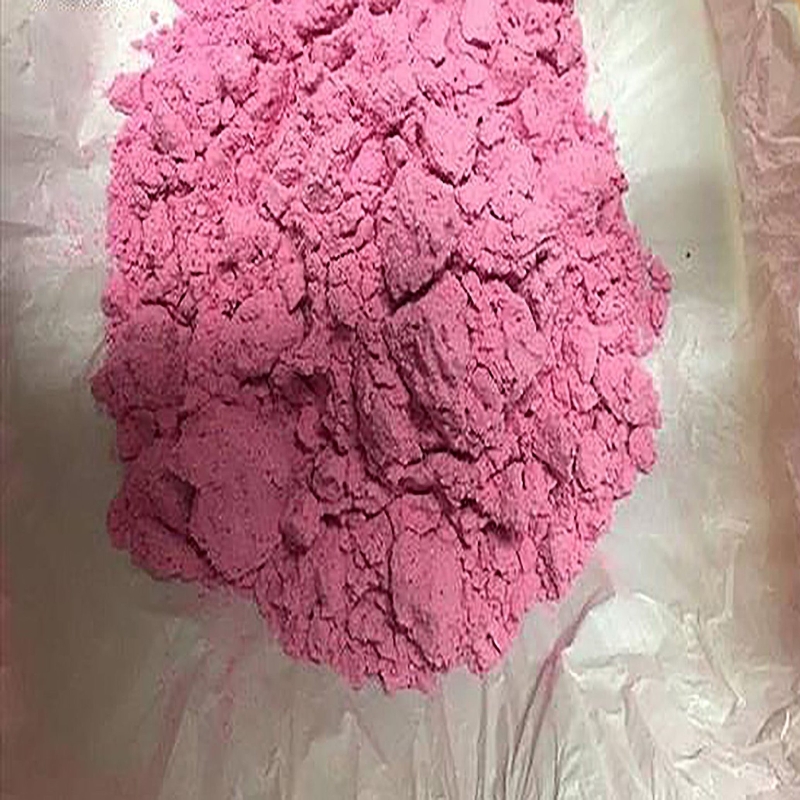-
Categories
-
Pharmaceutical Intermediates
-
Active Pharmaceutical Ingredients
-
Food Additives
- Industrial Coatings
- Agrochemicals
- Dyes and Pigments
- Surfactant
- Flavors and Fragrances
- Chemical Reagents
- Catalyst and Auxiliary
- Natural Products
- Inorganic Chemistry
-
Organic Chemistry
-
Biochemical Engineering
- Analytical Chemistry
-
Cosmetic Ingredient
- Water Treatment Chemical
-
Pharmaceutical Intermediates
Promotion
ECHEMI Mall
Wholesale
Weekly Price
Exhibition
News
-
Trade Service
Before anesthesia requires fasting and water, this has become the golden rule of anesthesia discipline.
At work, it is often found that many patients do not understand why they can’t eat or drink before surgery, especially for children.
Family members feel that if they do not eat or drink before surgery for such a long time, will they be dehydrated and starved.
For those who are fasting before surgery Patient interpretation and popular science are also essential for preoperative visits by anesthesiologists.
For elective surgery, the standard fasting water time has long been a guideline requirement and is commonly used in major surgery; anesthesia, surgery, and operating rooms will inform the fasting water requirements at different times.
Although there are repeated orders, there are still occasions in the anesthesia work.
"Unexpected full stomach", the first case I encountered "unexpected full stomach" was in my third year of work.
A young boy over three years old underwent elective eye surgery.
He had a pre-operative visit the day before and specifically explained the fasting of water; he entered the room on the day of the operation, and he asked his parents again about the time of fasting water when he was connected to the operating room.
All were done as required .
The induction and maintenance were very stable, and the operation was completed smoothly, and the recovery was also very fast.
After the respiratory assessment was satisfied, the tube was extubated.
Unexpectedly, after extubation, the child coughed twice, and then vomited a lot of stomach contents.
It was clear that it was noodles! Quickly lower your head, attract, lie on your side, pat your back, and then vomit twice.
After the treatment is complete, you will "interview" your parents again, but they insist on not eating any food.
Finally, the grandmother on the side tells you that your grandson is hungry.
, I secretly ate half a packet of instant noodles at six o'clock in the morning without telling anyone else.
Fortunately, the child did not cause obvious aspiration and was transferred to the ICU for safety after surgery.
This incident reminds me now that I still have lingering fears.
This kind of severe and unexpected full stomach is like an unexpectedly difficult airway, which will be unforgettable for anesthesiologists.
Generally speaking, it is relatively rare for elective surgery to encounter "unexpected full stomach".
This thorny problem is more likely to occur in emergency surgery.
I collided head-on with it a few days ago.We were on duty this day.
We had nothing to do with the surgical department in the first half of the night.
At 04:00 in the morning, we called an emergency department for epistaxis.
The patient was a 12-year-old boy.
He had adenoid and tonsillectomy performed in our hospital 2 weeks ago.
There is a small amount of interruption.
Bleeding, bright red, had dinner at 18 o'clock the night before, and dinner was beef balls.
Get up quickly to prepare.
The patient enters the operating room at 04:50.
Check the patient: clear consciousness, stable vital signs, occasional cough but no obvious secretions, visible red blood is continuously oozing from the nasal cavity, but the slow speed can be erased; Before the operation, the routine blood hemoglobin was 113g/L, and the surgeon rushed in.
After seeing the situation, I went out and asked my family to sign it.
After 5 minutes, I saw the patient sideways on the operating bed.
Blood was surging from the nasal cavity, and the compression was ineffective.
! Call for help from the second-line doctor on the scene, and start the rapid sequence induction while the head is low, and want to protect the airway as soon as possible; when preparing to give the drug, the patient coughed loudly, coughing up a large amount of bright red blood clots, like tofu clots, 4-5 pieces; After that, he began to vomit, vomited a lot, and ejected.
The dark red blood clot was entrained with brown food residue, which was estimated to be 300ml.
This scene really stunned all the doctors and nurses present.
After the vomiting was over, the patient felt obviously refreshed.
Although there was still nose bleeding, we promptly induced intubation.
The intubation process went smoothly.
There was no blood accumulation in the oropharyngeal cavity.
He was relieved after pumping up and sealing the trachea.
The nose was visible through the nasal endoscopy.
The posterior chamber jet-like arterial bleeding was hidden, and it took a lot of effort to completely stop it.
Near the end of the operation, the blood gas and hemoglobin 72g/L were rechecked, and the RBC 2U was input and returned to the ward safely.
I went to a follow-up visit on the second day and talked with the patient and family members in detail.
It was found that the patient had been intermittent epistaxis for 2 weeks after surgery, but it was not serious.
He had stopped bleeding once under local anesthesia a few days ago.
The epistaxis was significantly worsened in the morning before the operation, but it relieved spontaneously after admission.
Preparation is late at night.
The guy complained of bleeding and swallowed, coughing out less, and the swallowed blood can significantly delay gastric emptying; I guess a lot of bleeding accumulates in the nasal cavity and forms a clot to oppress the nasal cavity to reach bleeding, and then the illusion that the nosebleed is reduced after admission.
After entering the operating room, he coughed and caused the blood clot to move, and he began to bleed a lot. For this experience, I was fortunate that there was no aspiration incident.
At that time, the patient was obviously full of stomach, but I naively believed that the fasting time was enough and the nose had a small amount of bleeding.
"Expected full stomach" emergency surgery is insufficiently prepared.
Looking back at the guidelines for fasting before surgery in adults and children and the use of drugs to reduce the risk of lung aspiration (2017), the guidelines clearly point out that the principle of fasting before 2-4-6-8h is only applicable to patients without gastrointestinal motility disorders or Children, at the same time, "patients undergoing emergency surgery, are treated as full-stomached patients with anesthesia", and it is necessary to extend the fasting time for patients with the following conditions: patients with severe trauma, eating time to injury time is less than 6 hours; patients with gastrointestinal obstruction; obese patients; Patients with difficult airways; patients with central nervous system diseases such as head injury, intracranial hypertension, and coma.
Instead of worrying about encountering "unexpected full stomach", active screening is the kingly way.
Ultrasound gastroscopy is a non-invasive, fast and effective method.
For details, please refer to the Minimalist Stomach Ultrasound Guide.
You will learn it right away.
The possibility of "unexpected full stomach" in elective surgery is very low.
It is recommended to scan only when full stomach is suspected, and it is best to scan and confirm one by one in emergency surgery.
Rare but encountered, and then unforgettable, mastering one more skill will allow us to step down a lot of pits, keep making progress and progress, and your patients will be safer.
Two experiences, shared with you, welcome to leave a message to share the "unexpected full stomach" cases you encountered in your work.
Previous post: Count down those complications in anesthesia that are "very low, but extremely harmful" recommended: a minimalist gastric ultrasound guide, you will learn it as soon as you learn
At work, it is often found that many patients do not understand why they can’t eat or drink before surgery, especially for children.
Family members feel that if they do not eat or drink before surgery for such a long time, will they be dehydrated and starved.
For those who are fasting before surgery Patient interpretation and popular science are also essential for preoperative visits by anesthesiologists.
For elective surgery, the standard fasting water time has long been a guideline requirement and is commonly used in major surgery; anesthesia, surgery, and operating rooms will inform the fasting water requirements at different times.
Although there are repeated orders, there are still occasions in the anesthesia work.
"Unexpected full stomach", the first case I encountered "unexpected full stomach" was in my third year of work.
A young boy over three years old underwent elective eye surgery.
He had a pre-operative visit the day before and specifically explained the fasting of water; he entered the room on the day of the operation, and he asked his parents again about the time of fasting water when he was connected to the operating room.
All were done as required .
The induction and maintenance were very stable, and the operation was completed smoothly, and the recovery was also very fast.
After the respiratory assessment was satisfied, the tube was extubated.
Unexpectedly, after extubation, the child coughed twice, and then vomited a lot of stomach contents.
It was clear that it was noodles! Quickly lower your head, attract, lie on your side, pat your back, and then vomit twice.
After the treatment is complete, you will "interview" your parents again, but they insist on not eating any food.
Finally, the grandmother on the side tells you that your grandson is hungry.
, I secretly ate half a packet of instant noodles at six o'clock in the morning without telling anyone else.
Fortunately, the child did not cause obvious aspiration and was transferred to the ICU for safety after surgery.
This incident reminds me now that I still have lingering fears.
This kind of severe and unexpected full stomach is like an unexpectedly difficult airway, which will be unforgettable for anesthesiologists.
Generally speaking, it is relatively rare for elective surgery to encounter "unexpected full stomach".
This thorny problem is more likely to occur in emergency surgery.
I collided head-on with it a few days ago.We were on duty this day.
We had nothing to do with the surgical department in the first half of the night.
At 04:00 in the morning, we called an emergency department for epistaxis.
The patient was a 12-year-old boy.
He had adenoid and tonsillectomy performed in our hospital 2 weeks ago.
There is a small amount of interruption.
Bleeding, bright red, had dinner at 18 o'clock the night before, and dinner was beef balls.
Get up quickly to prepare.
The patient enters the operating room at 04:50.
Check the patient: clear consciousness, stable vital signs, occasional cough but no obvious secretions, visible red blood is continuously oozing from the nasal cavity, but the slow speed can be erased; Before the operation, the routine blood hemoglobin was 113g/L, and the surgeon rushed in.
After seeing the situation, I went out and asked my family to sign it.
After 5 minutes, I saw the patient sideways on the operating bed.
Blood was surging from the nasal cavity, and the compression was ineffective.
! Call for help from the second-line doctor on the scene, and start the rapid sequence induction while the head is low, and want to protect the airway as soon as possible; when preparing to give the drug, the patient coughed loudly, coughing up a large amount of bright red blood clots, like tofu clots, 4-5 pieces; After that, he began to vomit, vomited a lot, and ejected.
The dark red blood clot was entrained with brown food residue, which was estimated to be 300ml.
This scene really stunned all the doctors and nurses present.
After the vomiting was over, the patient felt obviously refreshed.
Although there was still nose bleeding, we promptly induced intubation.
The intubation process went smoothly.
There was no blood accumulation in the oropharyngeal cavity.
He was relieved after pumping up and sealing the trachea.
The nose was visible through the nasal endoscopy.
The posterior chamber jet-like arterial bleeding was hidden, and it took a lot of effort to completely stop it.
Near the end of the operation, the blood gas and hemoglobin 72g/L were rechecked, and the RBC 2U was input and returned to the ward safely.
I went to a follow-up visit on the second day and talked with the patient and family members in detail.
It was found that the patient had been intermittent epistaxis for 2 weeks after surgery, but it was not serious.
He had stopped bleeding once under local anesthesia a few days ago.
The epistaxis was significantly worsened in the morning before the operation, but it relieved spontaneously after admission.
Preparation is late at night.
The guy complained of bleeding and swallowed, coughing out less, and the swallowed blood can significantly delay gastric emptying; I guess a lot of bleeding accumulates in the nasal cavity and forms a clot to oppress the nasal cavity to reach bleeding, and then the illusion that the nosebleed is reduced after admission.
After entering the operating room, he coughed and caused the blood clot to move, and he began to bleed a lot. For this experience, I was fortunate that there was no aspiration incident.
At that time, the patient was obviously full of stomach, but I naively believed that the fasting time was enough and the nose had a small amount of bleeding.
"Expected full stomach" emergency surgery is insufficiently prepared.
Looking back at the guidelines for fasting before surgery in adults and children and the use of drugs to reduce the risk of lung aspiration (2017), the guidelines clearly point out that the principle of fasting before 2-4-6-8h is only applicable to patients without gastrointestinal motility disorders or Children, at the same time, "patients undergoing emergency surgery, are treated as full-stomached patients with anesthesia", and it is necessary to extend the fasting time for patients with the following conditions: patients with severe trauma, eating time to injury time is less than 6 hours; patients with gastrointestinal obstruction; obese patients; Patients with difficult airways; patients with central nervous system diseases such as head injury, intracranial hypertension, and coma.
Instead of worrying about encountering "unexpected full stomach", active screening is the kingly way.
Ultrasound gastroscopy is a non-invasive, fast and effective method.
For details, please refer to the Minimalist Stomach Ultrasound Guide.
You will learn it right away.
The possibility of "unexpected full stomach" in elective surgery is very low.
It is recommended to scan only when full stomach is suspected, and it is best to scan and confirm one by one in emergency surgery.
Rare but encountered, and then unforgettable, mastering one more skill will allow us to step down a lot of pits, keep making progress and progress, and your patients will be safer.
Two experiences, shared with you, welcome to leave a message to share the "unexpected full stomach" cases you encountered in your work.
Previous post: Count down those complications in anesthesia that are "very low, but extremely harmful" recommended: a minimalist gastric ultrasound guide, you will learn it as soon as you learn







